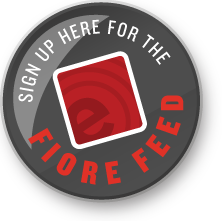We Can Be Friends: Editing as Coaching Makes Communication Successful
The first time I submitted a story to an editor, I cried.
I also later married him, but that’s a story for another day.
It was a story about rugby. I know more about Sanskrit literature than I do about rugby. Even though I worked hard, interviewed a million people and put together what I thought was a pretty good story, I was still terrified of the editor’s red pen.
I had no reason to be, and neither do you.
Everyone Needs an Editor
First of all, let’s all agree on this. Everyone needs an editor. You need an editor. I need an editor. Oprah needs an editor. My editor needed an editor (boy, did he ever). Corollary: Editors do more than just move commas around.
Think of it this way. The ideas I’m typing out right now have been in my head a long time. They’re my friends. I look past the imperfections, the missing words, the ideas that need fleshing out. I know them inside and out and, to me, they’re perfect. Dave is going to edit this article, and he’s going to show me where my ideas aren’t putting their best foot forward. Where I need to add a word or take a few away and, yes, the comma splices because it’s a bad habit I’ve acquired. See also: using like for such as.
I see you, Dave. I’m trying, OK?
We all need editors because editors, particularly in our professional lives, make sure we’re looking and sounding our best. It applies across all your communications because all your communications matter. You’d be astonished what a skilled editor can do with something as simple as a social media post, a Tweet, an email campaign, your marketing collateral and publications. Editors give your ideas poise and polish. Our particular skill set also makes us good at deadlines and idea organization, so not only are your communications sounding great, they’re also right on time. We make sure you’re talking to the right people at the right time and in the right place.
With me? Great.
Put Me In, Coach
If you’ve spent any time at all around the written word, you probably have an image in your head of a pedantic, nitpicking, grizzled wordsmith who’s cranky on the best of days and possibly homicidal on the worst.
Terrifying, right? I am glad to be the one to tell you that your image is wrong.
Editors, by and large, are writing coaches. It’s our job not just to move commas, but to help you understand why we moved the comma in the first place. I want the writers I edit to be better writers for having worked with me. And that doesn’t come from a one-sided process. Good editing is a collaboration between the writer and the editor to make the resulting work, whether it’s the great American novel or a 400-word news release, better.
This process may take five rounds of edits or 12 or 42. It may take lots of questions, some moving of commas, more questions, lengthy explanations and a rabbit hole or two. It should be a give and take on both sides, and “because I said so” should never come up. A good editor can motivate a writer in ways the writer never thought of, navigating past gnarly writers block or bad phrasing with deftness and ease. They’re great for bouncing ideas off of, because they’ve probably seen and done it before. Editors can also suggest new sources, conduct research and find themes or avenues you may not have thought of.
It may not always be a fun process, but sometimes growth isn’t.
Keeping Your Voice
While all this is happening, the writer’s voice and tone (or the business’s brand) should be perfectly preserved. The best editors know that things aren’t wrong just because that’s not the way you would’ve written it.
What is your voice? Your writing voice or your business’s voice is what you consistently exhibit across all your communications. You can probably tell that I write a lot like a talk.
True facts.
If, all of the sudden, I shifted my voice in this blog post to a much more dense, academic tone, you would definitely notice. It would be jarring and give you a reason to pause in your reading.
Pro tip: Never, ever give your reader a reason to stop reading.
I might also be alienating my audience and that’s another reason to stop reading and, possibly, giving them an unfavorable impression of me and the company I’m representing.
Editors can help you navigate this and keep you consistent across all your platforms and messages. This makes your communications more accessible to your audience and, in turn, makes you more successful.





